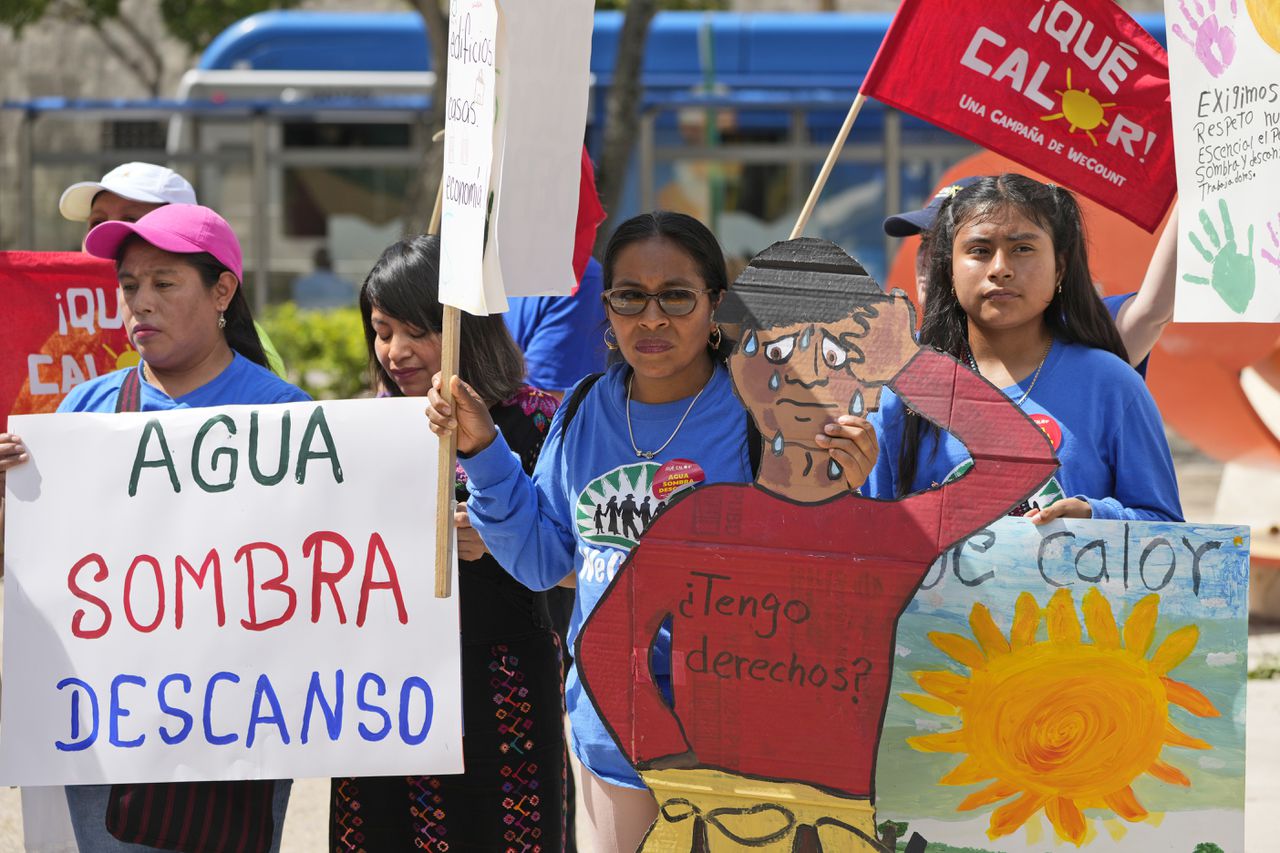Florida could become the latest state to block extreme heat protections for workers
Florida is moving forward with legislation that would prohibit cities and counties from adopting mandatory protections against extreme heat — laws that workers say is a blow to labor rights amid increasing climate concerns.
House Bill 433 and Senate Bill 1492 would preempt local ordinances that protect employees and outside workers in industries like agriculture and construction, according to the ACLU of Florida. HB 433 would also prohibit local governments from regulating “any term or condition of employment,” including minimum wage, that exceeds or conflicts with state and federal law.
“The majority of our field workers suffer from heat stress,” Teresa Choc, an organizer with the Farmworker Association of Florida in Homestead, told WLRN. “We’re the ones who put the food on everyone’s table and it’s through arduous work in the sun.”
Heat kills more people in the U.S. each year than any other kind of extreme weather, according to the National Weather Service. A study by NPR and Columbia Journalism found that almost 400 people have died of heat-related illness in the last decade, with Latino workers disproportionately impacted.
Last summer, record-breaking temperatures caused a resurgence of interest in weather policy. Texas passed legislation similar to that of Florida’s, limiting local governments from enacting ordinances for mandatory breaks for outdoor workers. House Resolution 3965, a bipartisan bill introduced by legislators from Arizona, Texas and Nevada in June, would have designated extreme heat as a major disaster under the Federal Emergency Management Agency, but it was stalled.
It is part of a larger trend of states denying explicit worker protections in extreme weather.
Only a few states like California, Oregon, Minnesota and Washington have mandated heat safety measures, according to the United Farm Workers. On Wednesday, Arizona appointed the nation’s first-ever heat officer.
The Florida House passed HB 433 on Monday as SB 1492 awaits a vote in the Senate. Both bills would go into effect July 1.
This comes after Florida, and the rest of the world, experienced the hottest year in recorded history in 2023. The warming trend is expected to continue as the impacts of climate change become more pronounced, with last month recorded as the warmest February ever.
Both bills are believed to be in response to efforts made last year by Miami-Dade County to require employers to give workers water and shade breaks on hot days. The legislation, called the ¡Qué Calor! Ordinance, would have been the first to mandate workplace heat-safety measures on days over 90 degrees and offer related trainings, but it was stalled due to pressure from the agriculture and construction companies, according to the Orlando Sentinel. Consideration of the bill has been delayed to March.
In Florida, outdoor employers are not required to provide protections from the heat. There are no federal laws that require it although it’s strongly suggested that workers be accommodated. The Occupational Safety and Health Administration in 2022 began a National Emphasis Program on heat exposure to “encourage” employer intervention during hot weather.
Conservatives against heat regulations say they don’t want to get between employers and workers, current policy is enough and any more would be “a case of overregulation.”
According to the Orlando Sentinel, since 2020, five companies in Florida have been fined after employees died of heat-related illness. Another four were cited after workers were hospitalized.
